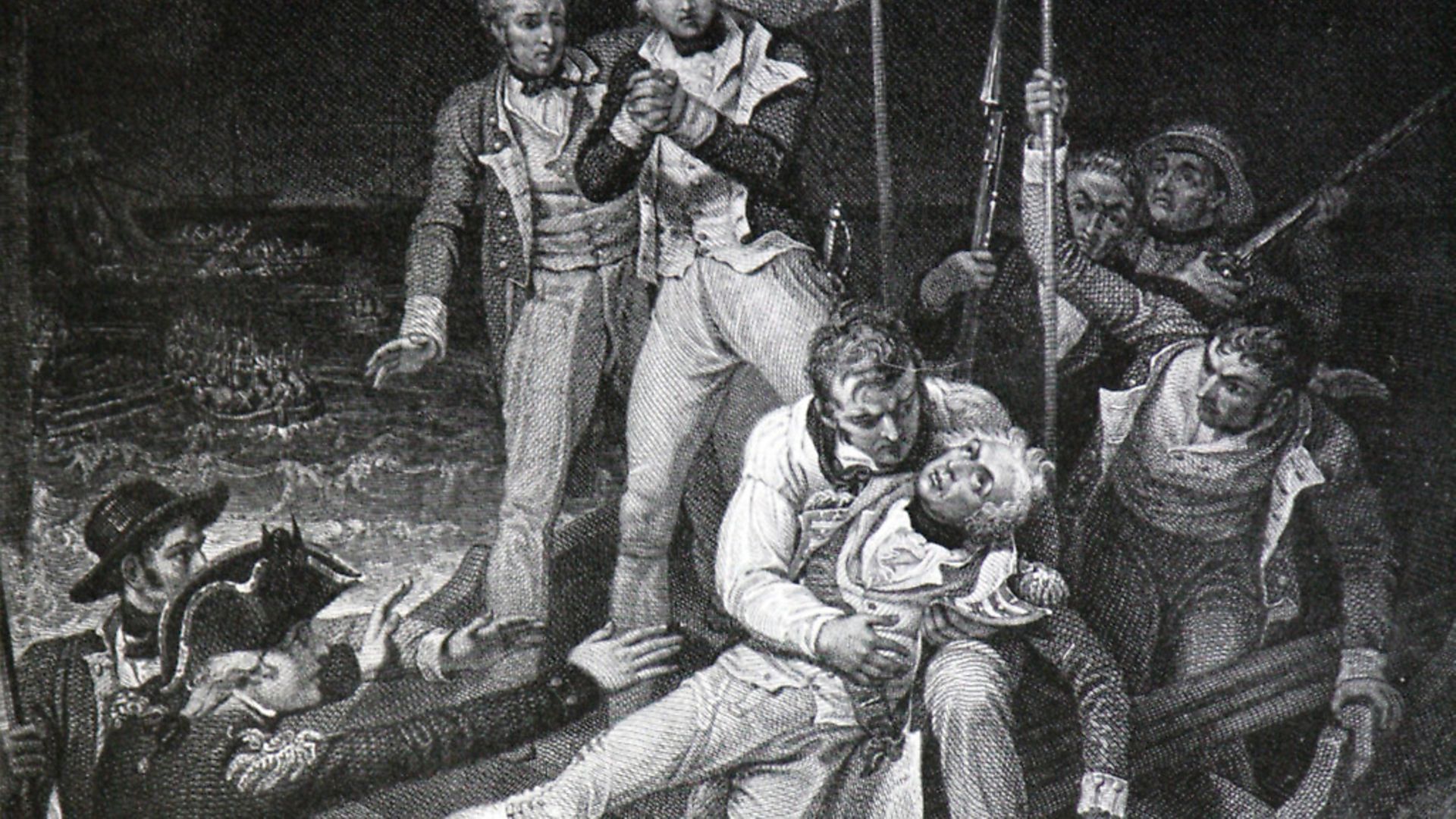
Nelsonian traditions are one thing, but some of our modern political practices need to go out with the tide, says MITCH BENN.
A few weeks ago I was asked to perform a short set at a Naval Officers’ Mess Dinner at HMS Sherwood in Nottingham. Attentive readers with a smattering of British geography will already have spotted that Nottingham is not by the sea. In fact it’s about as far inland as it’s possible to get on this pokey little island of ours.
Nonetheless, HMS Sherwood is indeed in Nottingham; it’s a naval base but still bears the initials HMS as, like all naval bases, it’s officially designated as a ship. It’s a building, it looks rather like a sports centre from the outside (albeit a conspicuously securely fenced-off sports centre) but for official purposes it’s a frigate.
What made the evening such a fun occasion was the very thing that had led me to feel rather apprehensive about the whole affair beforehand; the lengthy list of naval traditions which one is required to observe during dinner. And I do mean required; you’re fined if you break them (although by ‘fined’ they mean ‘you’re getting the rums in’).
For example, naval officers remain seated while drinking a toast to the Queen. The origins of this tradition are fairly obvious; back in Nelson’s day an officers’ dinner aboard ship would take place in a mess cabin with perhaps a 5ft 6in ceiling; even if you could stand up in such a space you’d have difficulty drinking while on your feet so naval officers, by tradition, remain seated during a royal toast.
Another old tradition is preserved in honour of Lord Nelson himself: at a naval mess dinner, one does not clap. Rather, when someone does something applause-worthy, such as make a speech (or indeed sing a comic song) the assembled diners slap the table heartily, with their left hands.
This tradition was established after the Battle of Santa Cruz de Tenerife in 1797, at which Nelson’s right arm had to be amputated after being shattered by a musket ball. Thereafter, mindful of the fact that their leader could no longer clap, his fellow officers chose instead to applaud in a manner which would not exclude him; slapping the table with their left hands, the hand which Nelson could still use.
Another tradition which persists to this day arose back in Britain around the same time: Prince George, the Prince Regent, having been prematurely installed as acting monarch while his father was incapacitated, was something of a scenester at the turn of the 19th century London; he was one of the first to adopt George ‘Beau’ Brummell’s daring new sartorial invention, the three-piece suit.
Those gentlemen among you who own a modern three-piece suit will be aware of the odd custom whereby one does not fasten the bottom button of the waistcoat; legend has it that the first to leave this button undone was Prince George himself, but in his case this was not a fashion statement so much as weight gain (and a reluctance to acknowledge this weight gain by purchasing bigger clothes) making that button unfastenable. Rather than embarrass his expanding Royal Highness, his fellow Regency hipsters started to leave that button open as well and it’s been a Thing ever since.
This is often how traditions arise; the leader or figurehead of a group finds himself unable to do something, so his subordinates choose not to do it either so as not to show him up. An admiral loses a arm; his loyal officers start to applaud one-handed. A prince grows too fat for his waistcoat; his friends unbutton theirs too.
We, as in the western world, are currently being led by people who are incapable of speaking the truth. And so, speaking the truth is no longer the done thing.
In the United States we see Republican politicians jumping through the most bizarre sophistic hoops, mangling reason and strangling syntax all in order to avoid the obvious fact that almost every word spoken by the president, their leader, is demonstrably untrue. Not necessarily a lie; just untrue. Observing president Trump, it seems likely that he believes everything he says because, as far as he’s concerned, if he said it, it’s true. It becomes true as it passes his lips.
Here, to reinforce the tower of three years’ worth of lies on which Brexit now teeters (itself the result of 40 years of previous lies), our leaders and prospective leaders speak without regard to facts or reality. Whatever sounds good, whatever the faithful will cheer, whatever the members will vote for. Just say whatever it takes.
Moreover, while lying is now the norm, pointing out someone else’s lies is unacceptable behaviour. The liars are applauded and elevated while those who try to expose their lies are denounced as enemies of the people, saboteurs, traitors.
It seems odd to reflect that not long ago lying was considered a bad thing. That someone caught in a lie would have to own up, apologise, take their lumps. Not any more.
I won’t wish for a world without lies; that’s an impossible standard to which none of us, least of all I, could live up. But can we at least Make Lying Bad Again?
MLBA.
Hard to say out loud but it would look good on a hat.
Warning: Illegal string offset 'link_id' in /mnt/storage/stage/www/wp-includes/bookmark.php on line 357
Notice: Trying to get property 'link_id' of non-object in /mnt/storage/stage/www/wp-includes/bookmark.php on line 37







